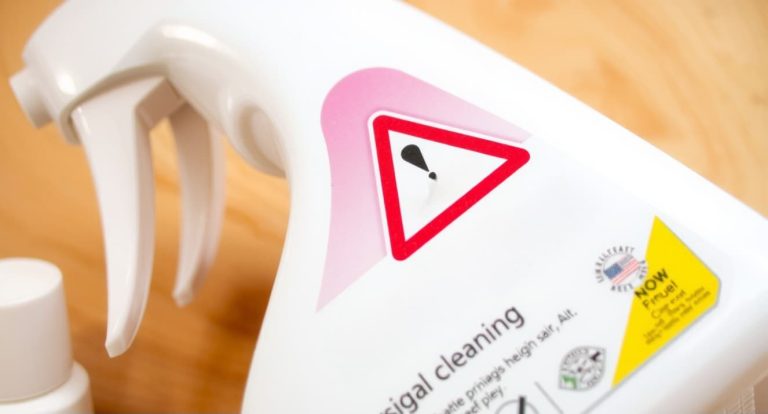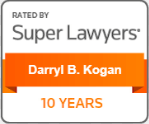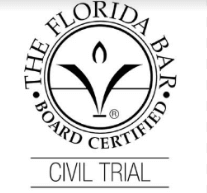
Understanding Product Liability Claims for Defective Products
Table of Contents
At Kogan & DiSalvo Personal Injury Lawyers, we recognize that consumers across Florida trust the products they use every day to be safe and reliable. However, when a defective product causes injury, the consequences can be devastating, ranging from minor harm to catastrophic injuries or even wrongful death. Product liability claims provide a legal pathway for consumers to seek justice and compensation from manufacturers, distributors, or retailers responsible for faulty products. In Florida, these claims are governed by specific laws and require a thorough understanding of legal principles to navigate successfully. In this blog post, we explore the legal avenues available to consumers injured by defective products, the types of product liability claims, and the potential compensation you may recover to help you move forward after an injury.
What Are Product Liability Claims?
Product liability refers to the legal responsibility of manufacturers, distributors, suppliers, or retailers for injuries caused by defective or dangerous products. When a product fails to perform safely as intended, consumers harmed by that product can file a product liability claim to hold responsible parties accountable. In Florida, product liability claims are primarily governed by Florida Statute 768.81 and common law principles, allowing injured consumers to pursue compensation for medical expenses, lost wages, pain and suffering, and other damages.
Unlike other personal injury cases, product liability claims often rely on the doctrine of strict liability. Under strict liability, you do not need to prove that the manufacturer was negligent—only that the product was defective and caused your injury. This makes it easier for consumers to seek justice, as the focus is on the product’s condition rather than the manufacturer’s conduct. However, proving a defect and its connection to your injury requires meticulous evidence and legal expertise, which is where an experienced Florida product liability attorney becomes essential.
Types of Product Liability Claims In Florida
Product liability claims in Florida generally fall into three main categories, each addressing a different type of defect or failure. Understanding these categories helps clarify the legal avenues available to you and the basis for your claim.
Design Defects
A design defect exists when a product’s inherent design is unreasonably dangerous, even if it is manufactured correctly. These defects affect an entire product line, not just a single unit. For example, a car model with a flawed braking system that fails under normal conditions could be considered defectively designed. To succeed in a design defect claim, you must show that the product’s design was inherently unsafe and that a safer, feasible alternative design was available. In Florida, courts often apply the “risk-utility test” to evaluate design defects, assessing whether the product’s risks outweigh its benefits and whether a reasonable alternative design could have prevented the injury.
Manufacturing Defects
A manufacturing defect occurs when a product is flawed due to an error during production, assembly, or quality control, making it different from other units in the same product line. For instance, a batch of medication contaminated during production or a power tool with a faulty component could have a manufacturing defect. In these claims, you must prove that the defect arose during the manufacturing process and that it caused your injury. Manufacturing defect cases often involve analyzing production records, quality control reports, and the specific unit that caused harm to establish the defect’s origin.
Failure to Warn or Inadequate Instructions
A failure-to-warn claim arises when a product lacks adequate warnings or instructions about its safe use, rendering it unreasonably dangerous. This type of defect applies when a product has inherent risks that are not obvious to consumers, and the manufacturer fails to provide clear guidance to mitigate those risks. For example, a household cleaner that causes severe burns if mixed with other chemicals must include a prominent warning about this danger. In Florida, you must show that the manufacturer knew or should have known of the risk, failed to provide sufficient warnings or instructions, and that this failure caused your injury. Courts evaluate whether the warnings were clear, conspicuous, and specific enough to inform a reasonable consumer.
Legal Avenues for Pursuing Product Liability Claims in Florida
Consumers injured by defective products in Florida have several legal avenues to pursue compensation, depending on the circumstances of their case. Each avenue involves distinct legal theories and strategies, which your attorney will tailor to the facts of your injury.
Strict Liability Claims
As mentioned, strict liability is the most common basis for product liability claims in Florida. Under strict liability, you must prove three elements: (1) the product was defective (design, manufacturing, or failure to warn), (2) the defect made the product unreasonably dangerous, and (3) the defect directly caused your injury. Strict liability shifts the burden away from proving negligence, focusing instead on the product’s condition. For example, if a defective ladder collapses and causes you to fall, you can pursue a strict liability claim against the manufacturer without proving they were careless in designing or building the ladder.
Negligence Claims
In some cases, you may pursue a negligence-based product liability claim, which requires showing that the manufacturer, distributor, or retailer failed to exercise reasonable care in designing, producing, or marketing the product. For instance, if a company ignored reports of a product’s dangers during testing, their negligence could be the basis for a claim. Negligence claims require evidence of the defendant’s actions, such as internal memos, testing failures, or ignored safety standards, making them more complex than strict liability claims.
Breach of Warranty Claims
A breach of warranty claim arises when a product fails to meet the promises made by the manufacturer or seller. There are two types of warranties in product liability cases: express and implied. An express warranty is a specific guarantee, such as a label claiming a product is “safe for all ages.” An implied warranty, under Florida’s Uniform Commercial Code (Florida Statute 672.314), ensures that a product is fit for its ordinary purpose or a specific use promised by the seller. If a product’s defect breaches these warranties and causes injury, you can sue for damages. For example, if a fitness tracker marketed as waterproof malfunctions and causes an electrical shock, you could file a breach of warranty claim.
Class Actions and Mass Torts
If a defective product injures many consumers, you may join a class action or mass tort lawsuit. Class actions involve a group of plaintiffs with similar injuries suing together, often for widespread design defects, like a faulty medical device. Mass torts, on the other hand, involve individual claims coordinated under a single legal framework, such as defective drugs causing varied injuries. These lawsuits allow consumers to pool resources and hold large corporations accountable. In Florida, courts handle class actions and mass torts under strict procedural rules, and our attorneys can determine if this avenue suits your case.
Potential Compensation in Product Liability Claims
If you’ve been injured by a defective product, you may be entitled to various types of compensation, known as damages, to address the financial, physical, and emotional toll of your injury. In Florida, product liability claims can recover both economic and non-economic damages, and in rare cases, punitive damages. Below, we detail the potential compensation available.
Economic Damages
Economic damages compensate for tangible financial losses caused by the defective product. These include:
- Medical Expenses: Costs for hospital stays, surgeries, medications, rehabilitation, and future medical care for ongoing injuries. For example, if a defective hip implant requires revision surgery, you can recover these costs.
- Lost Wages: Income lost due to time away from work during recovery. If you’re unable to return to your job, you may also recover loss of earning capacity for reduced future income.
- Property Damage: Costs to repair or replace property damaged by the defective product, such as a vehicle damaged by a faulty tire.
- Out-of-Pocket Expenses: Miscellaneous costs, like transportation to medical appointments or hiring help for household tasks you can no longer perform.
Non-Economic Damages
Non-economic damages address intangible losses that don’t have a direct monetary value but significantly impact your life. These include:
- Pain and Suffering: Compensation for physical pain and emotional distress caused by your injuries, such as chronic pain from a defective medical device.
- Mental Anguish: Damages for psychological impacts, like anxiety, depression, or post-traumatic stress disorder, often seen in cases involving severe injuries.
- Loss of Enjoyment of Life: Compensation for the inability to participate in hobbies, family activities, or other joys due to your injuries.
- Loss of Consortium: Damages awarded to your spouse or family for the loss of companionship or support caused by your injuries.
Punitive Damages
In rare cases, Florida courts may award punitive damages to punish the defendant for egregious conduct and deter similar behavior. Under Florida Statute 768.73, punitive damages are capped at three times the compensatory damages or $500,000, whichever is greater, unless the defendant’s actions were intentional or grossly negligent. For example, if a manufacturer knowingly sold a defective product without addressing reported dangers, punitive damages might apply. Your attorney must present clear evidence of willful misconduct to pursue these damages.
Challenges in Product Liability Claims
Product liability claims can be complex, as manufacturers and their insurers often employ aggressive defense strategies to avoid liability. Common challenges include:
- Proving the Defect: Establishing that a product was defective and caused your injury requires detailed evidence, such as product testing, expert analysis, and documentation of the injury. For example, proving a manufacturing defect may involve comparing the faulty unit to industry standards.
- Causation: Defendants may argue that your injury resulted from misuse of the product or an unrelated cause. Your attorney must link the defect directly to your harm, often using expert testimony from engineers or medical professionals.
- Statute of Limitations: In Florida, the statute of limitations for product liability claims is generally two years from the date of injury (Florida Statute 95.11(3)(a), amended in 2023). However, the statute of repose (Florida Statute 95.031) may limit claims to 12 years from the product’s delivery date, with exceptions for latent defects or fraud. Missing these deadlines can bar your claim.
- Corporate Defenses: Large manufacturers often have significant resources to dispute claims, hiring their own experts to challenge your evidence. A skilled attorney levels the playing field by building a robust case with compelling evidence.
How Kogan & DiSalvo Can Help
At Kogan & DiSalvo, our Florida product liability attorneys have been fighting for consumers injured by defective products since 1994. We understand the physical, financial, and emotional toll these injuries can take, and we’re committed to holding negligent manufacturers accountable. Our legal team conducts thorough investigations, working with top engineers, medical experts, and product safety specialists to prove defects and causation. We handle all aspects of your claim, from gathering evidence like product samples and recall notices to negotiating with insurers and litigating in court if necessary.
We know that pursuing a product liability claim can feel overwhelming, especially when you’re recovering from an injury. That’s why we offer free consultations to evaluate your case and work on a contingency fee basis—you pay nothing unless we win. Our attorneys are prepared to explore all legal avenues, whether it’s a strict liability claim, negligence lawsuit, or class action, to secure the maximum compensation you deserve.
Take Action Today
If you’ve been injured by a defective product in Florida, don’t wait to seek justice. The sooner you act, the stronger your case will be, as evidence like the faulty product or witness testimony can degrade over time. Contact Kogan & DiSalvo Personal Injury Lawyers today at (954) 733-6300 or online for a free, no-obligation consultation. Our dedicated team will review your case, explain your legal options, and fight tirelessly to secure compensation for your medical bills, lost wages, pain and suffering, and more. Let us handle the legal battle so you can focus on healing and rebuilding your life.
 (561) 375-9500
(561) 375-9500
 Call
Call





